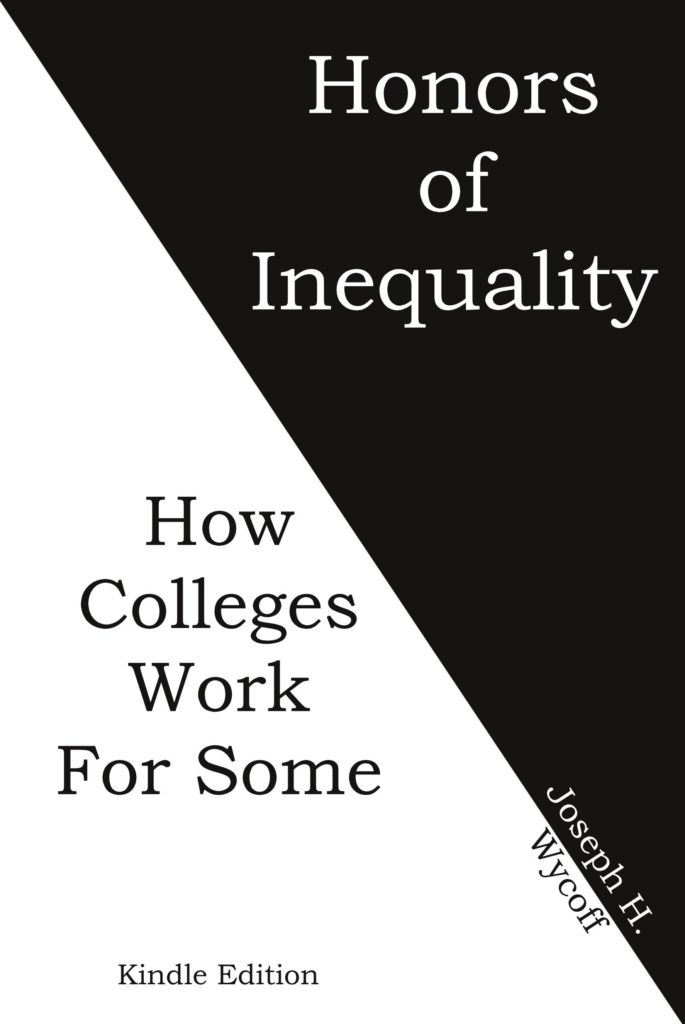In support of the #CancelStudentDebt initiative, and Joe Biden’s discouraging words at his first town hall meeting as U.S. President, I am offering Honors of Inequality free on Kindle from February 18 to February 22, 2021.
I published Honors of Inequality in January 2020, before the Democratic primaries and general election made student debt relief possible. The book is largely a historical analysis of higher education scholarship from the 1940s to 1990s. It traces the origins of a new field of study (or graduate discipline) from out of conservative thought regarding statewide coordination (1950s and 1960s), student unrest (1960s and 1970s), defense of elite education (1970s and 1980s) and a federal system for financing U.S. higher education (1980s and 1990s). I originally intended the work to appeal to historians and history buffs who are interested in the influence of conservative thought on recent American history.
The Epilogue, however, essentially summarizes the historical research and narrative in the larger book with a present eye on the social and economic inequity created by the federal student loan system. The middle section of the Epilogue (207-213 in the paperback) proposes a way to understand how institutional autonomy (elite functions of higher education), tuition discounting, and the federal student loan system have created a regressive system of taxation to fund U.S. higher education.
Institutions receive federal grant and loan dollars as tuition revenue on behalf of a particular student, but they are not required to spend those federal dollars on that particular student’s education. Other priorities defined by the institution’s autonomy allow administrators and faculty to reallocate federal grant and loan revenue from one student to pay for the education expenditures on another student such as those admitted on a full scholarships (honors programs, etc.) covered by unfunded discounts (not endowment funds).
I surmise that the late-twentieth-century business enterprise functions arising from conservative higher education scholarship have led to the recent #CancelStudentDebt movement. I share the e-book freely in hope that the Epilogue reaches policymakers and U.S. citizens who are committed to social and racial equity in higher education.

